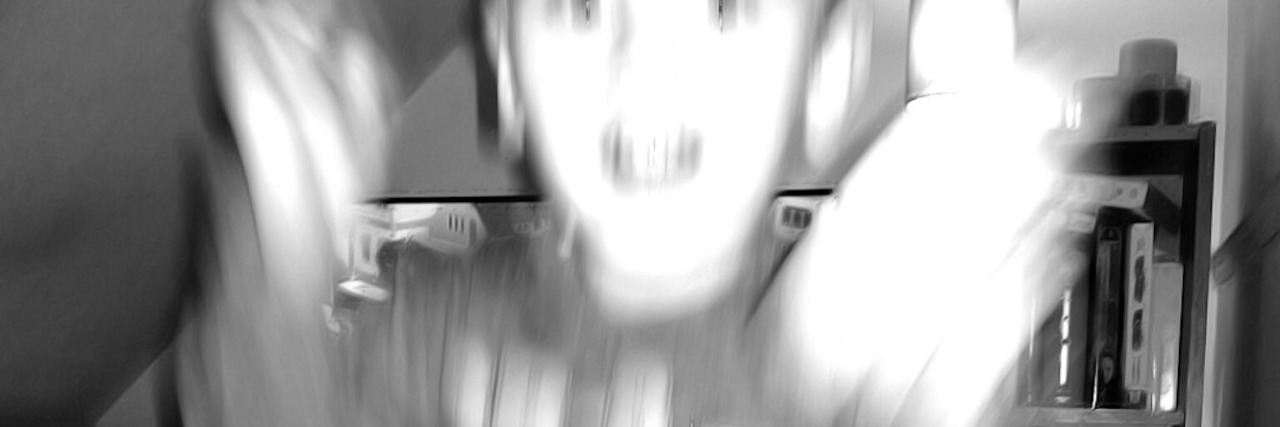I hear your voice from the other room:
“Hello, Harri. I am running about in the kitchen! I was running about and then you came!”
It is the longest utterance you have addressed to your sister. In fact, I can’t ever remember you speaking directly to her in this way before. My heart swells.
I creep in to watch you, in case you have more to say, but you turn away shyly; my presence has dispelled the moment.
“Sweetheart, that was lovely. It is wonderful to hear you speaking to Harri so nicely and being kind to her. Well done. What a good boy.”
Your face contorts with emotion, mouth open, eyes wild. You raise your hands up towards your eyes, twisting finger between fingers, shaking your whole torso. This pose is held for a moment before you move, turning away, your legs carrying you off with a joyful little trot, and you twist and flap your hands again.
I know these movements. I know them like I know your face. They tell me how pleased you are with my praise. They tell me your little body, your little heart, your little soul is filled with feelings and sensations too overwhelming for you – you cannot process them; they must find an outlet some other way.
If you type stimming into Google, it says this:
“Self-stimulatory behavior, also known as stimming and self-stimulation, is the repetition of physical movements, sounds, or repetitive movement of objects common in individuals with developmental disabilities, but most prevalent in people with autistic spectrum disorders.”
I was inspired to write this post through reading two articles. The first was one entitled “If I Could Take It Away” by Gym Bunny Mummy. The second was called “11 People With Autism Explain What Stimming Feels Like.” It included this quote from Katy Kennah:
“Stimming is like breathing… just as natural, just as important.”
Stimming, my love, is like breathing for you; it is necessary. Necessary for you, invaluable for me.
When the world is too bright, too busy, too overwhelming, it tells me what I need to do to help you. You bite your lips and fingers, tug and cover your ears, grind your teeth – sometimes you make noises or repeat words, words that seem to have no relation to what is happening around you. And I know you need a quiet place to be alone, the pressure of your weighted blanket cocooning you in your own little world, way from the painful noise and confusing chaos.
When you are happy and overwhelmed with pleasure and amusement, it tells me you love me, that I am doing something right. You raise your legs as you trot along, hands flapping, fingers twisting, mouth forming strange shapes in between your laughs and shouts. I know you are happy.
I have heard the questions – “Does he do that all the time? He looks quite uncomfortable. Is he in pain?”
Yes. You do it all the time. Sometimes the world is painful to you. Sometimes it is a symptom of your unadulterated glee.
When I first realized how much you do these actions, how much they consume you, I admit I was full of fear. They make you stand out. They make others stare. Your youth, at this moment in time, protects you. An inability to control emotions is so common in children of your age. Yet still, already there have been stares. Already, I have tried to make you stop, when I thought someone might see you and judge you unfairly. My gorgeous boy, now I see, stimming is like breathing to you – how could I possibly seek to stop you? Your breathing is my breathing, your comfort my own, your pain unequivocally mine.
But more than that, these actions are part of you; I don’t remember a time when you didn’t do them.
Sweetheart, although I know your stimming may make you seem strange, may make others point or laugh or wonder what is “wrong” with you – I don’t want to take it away. To take it away is to take away part of you. I don’t want to change you; I want to change the world so when you stim the world sees what I see: your passions, your love, your fears, your soul shining through – and you, all the parts of you, are beautiful.
Follow this journey on Someone’s Mum.

